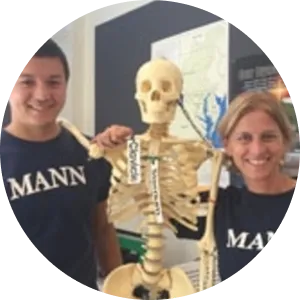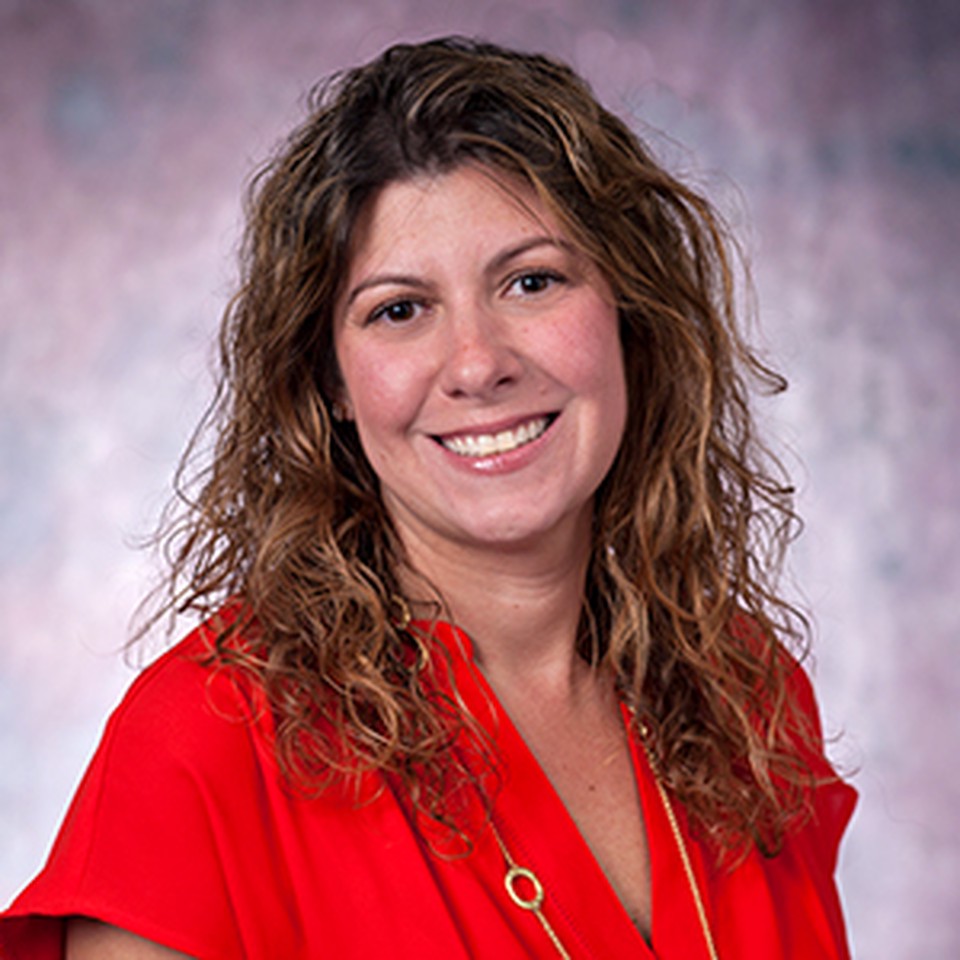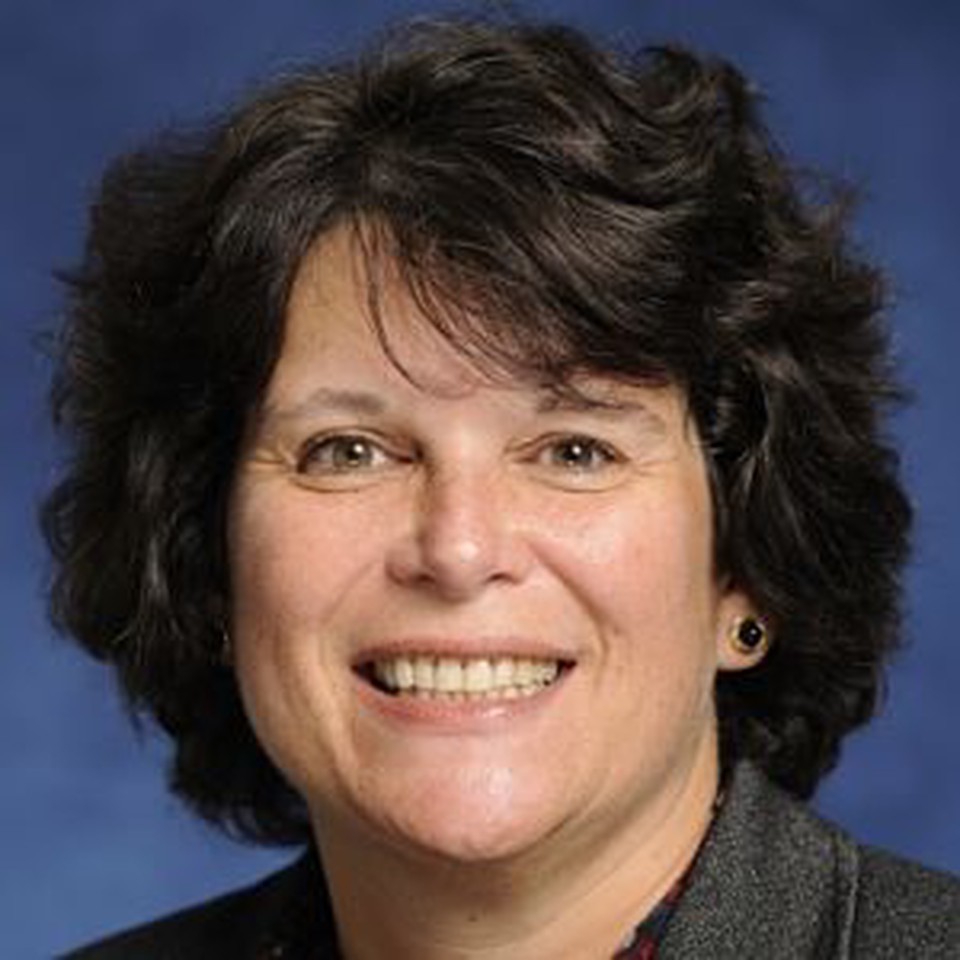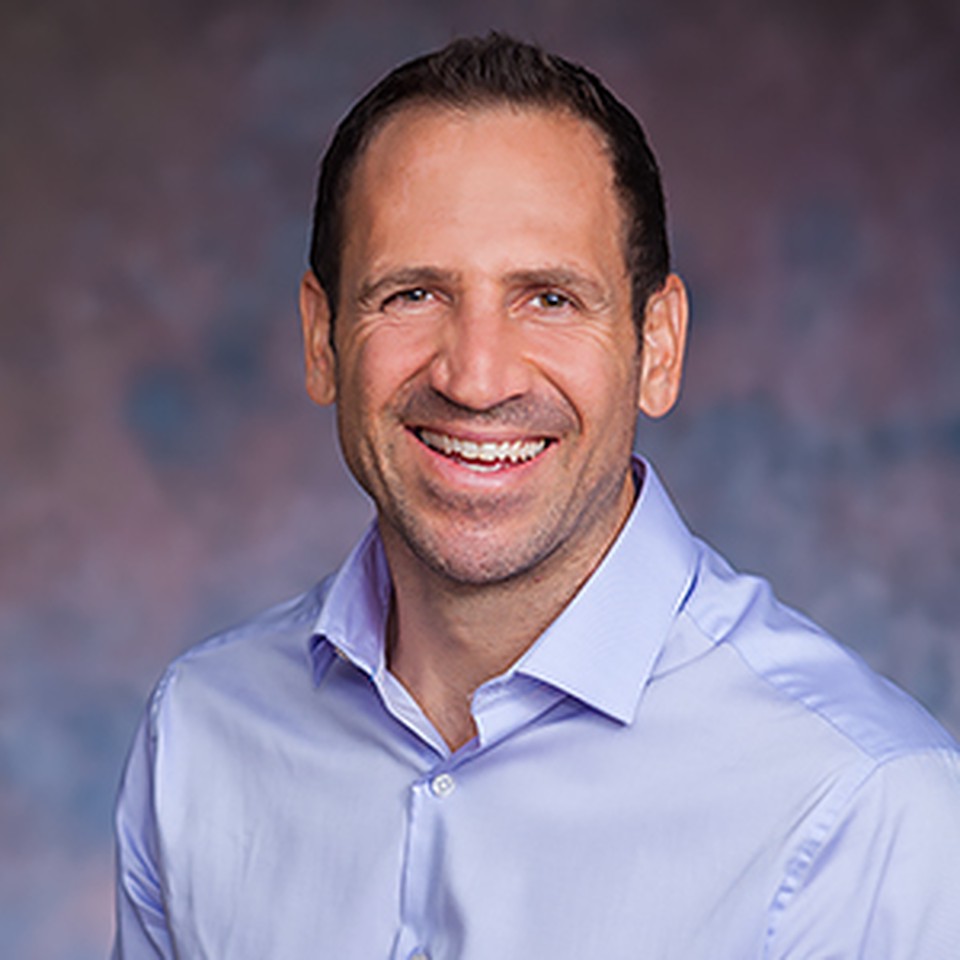Preparing Elementary School Educators with Our MAT Degree
Educators and learners today face a crisis. According to the Economic Policy Institute, “The teacher shortage is real, large and growing, and worse than we thought.” It’s not just elementary teaching jobs that need to be filled. The shortage of credentialed teachers is felt especially hard in special education, STEM subjects, and high-poverty schools.
AU’s online Master of Arts in Teaching (MAT) program is made to answer this challenge.
Developed on the idea that passionate, well-prepared, and progressive-minded teachers are key to sustaining a just and democratic society, the MAT degree program prepares current and aspiring educators to provide an excellent elementary education to all students, regardless of race, socioeconomic background, or learning disabilities.
The online Master of Arts in Teaching program will prepare you to turn learning differences into learning strengths as you delve deep into a cutting-edge curriculum that leverages advancements in neurodevelopment, social-emotional interventions, and a multidisciplinary approach to elementary education.
AU’s online MAT degree is CAEP (formerly NCATE) accredited and designed for individuals with a bachelor’s degree and an interest in earning a teaching license in elementary education. The latest approval (2023) was without any areas for improvement (AFIs).
We also have on-campus programs in Special Education, Secondary Education, English for Speakers of Other Languages (ESOL), and Early Childhood.
Required Credits
33 Credit Hours
Estimated Time to Completion
Less than 2 years
Classroom Hours Completed in Your State of Residence
600 Hours
MAT Degree Course Schedule
To complete the online Master of Arts in Teaching program, students must earn 33 credits, which includes six credit hours of field experience with a required seminar. Students enroll in two classes per semester and complete the program within 20 months.
Fieldwork is completed across two semesters. First, online MAT degree students engage in a semester-long practicum, spending two days per week in a local classroom observing and learning new skills. In their final semester, students complete their student-teaching requirement, which requires five days a week in a local classroom to apply and build their practical teaching tools through a gradual release model.
2 Hours
Synchronous
Live online or in-person classes with students in your cohort attended according to a specific schedule.
+
1-2 Hours
Asynchronous
Self-paced discussions and other course-related work.
+
5-7 Hours
Assignments
Homework, projects, research, etc.
=
8-11 Hours
Total Weekly Hours
Hours are estimates and subject to change per term course.
Online MAT Degree Program Pillars
Antiracist Pedagogy
Racism is institutional and systemic and includes the broader education system (Kendi, 2019). At SOE, we are deeply rooted in an antiracist pedagogical approach. Informed by the work of Ibram Kendi and American University’s Antiracist Research and Policy Center, we model antiracism by developing courses designed with pedagogical practices we want our graduates to enact with their PreK-12 students. Examples of this include but are not limited to using diverse scholars, including anti-bias and self-interrogation work, leading to deep self-reflection and growth.
Practice-Based Teacher Education
Practice-based teacher education includes a focus on high-leverage practices (HLP), which have been found to be essential to effective teaching. If teachers cannot effectively perform these activities, they are likely to face significant challenges in the classroom.
The Science of Learning
American University is a partner in the Deans for Impact Learning By Scientific Design Network, a group of educator-preparation programs that work together to ensure novice teachers understand the basic principles of learning science and employ these principles when they teach. The work is developed from Deans for Impact’s The Science of Learning.
The Master’s in Teaching Online Cohort Experience
Peer learning and a sustained learning network are essential hallmarks of the MAT degree program. As a result, master’s teaching students will progress through the program as part of a cohort, taking the same courses and accomplishing program milestones together. We intentionally build a cohort of MAT degree students from different backgrounds and experiences to contribute to the dynamic learning environment in the program. Learning will occur through robust dialogue and shared learning experiences.

“What I love about my program is how hands-on many of my classes are, the amazing advising team, and professors who truly care about seeing their students succeed to become great teachers for the future generation.“
Janiya Foster
Elementary Ed Class of ’20

Online Master of Arts in Teaching Curriculum
American University’s online Masters in Teaching for Elementary Education is not a typical teaching program. We prepare future teachers who are dedicated to helping ensure that all students in this country—regardless of race, socioeconomic background, or learning challenges—receive the high-quality education they deserve. We help our graduates achieve this through a curriculum built with a foundation of education courses that leverage advancements in neurodevelopment, social-emotional interventions, and a multidisciplinary approach to teaching elementary students. More specifically, our curriculum stands apart by equipping teachers to turn learning weaknesses into strengths, offer their students a cutting-edge, research-informed pedagogy, and place a focus on social justice at the heart of their classrooms.
Mursion Avatar Technology
All of AU’s teacher candidates are offered low-stakes practice opportunities in multiple courses through scaffolded video analysis and the use of Mursion avatar technology, which is a blend of artificial intelligence and live human interaction. The MAT’s use of Mursion is in its second successful year and supports our teacher candidates to plan, enact, and critique their teaching before they work with live students. We also use Mursion to practice difficult yet critical conversations with parents and other caregivers regarding their child’s educational progress. Our Mursion work is made possible by a private donor who believes in the mission and vision of AU’s School of Education.
Coursework
Below is a sample course sequence of a fall semester start; summer cohort starts may have a slightly different sequence.
Surveys research literature in learning and human development with an emphasis on the role of educators as decision-makers and change agents who are knowledgeable about diversity and multiculturalism. Emphasizes the role today’s educators play on advancing knowledge about instructional technology, human relations, time management, principles of growth and development, and the processes of memory and cognition. Usually Offered: fall, spring, and summer.
Through action research, students explore ways of organizing and managing classrooms to support diverse learners. Students engage in curriculum design and implementation across the curriculum, including instructional planning and using portfolios. The role that families, the community, and other professionals can play in assessment and curriculum planning are explored.
This course focuses on understanding language acquisition, literacy development, and classroom teaching through the lens of cultural and linguistic diversity. Includes class discussion of strategies for teaching literacy with practical application in local elementary schools.
Critical exploration of picture books and adolescent literature with a focus on using children’s literature to explore issues of social justice and equity.
This survey course examines students with diverse learning needs and effective programs designed to provide equitable education for all students. Exceptionalities of students with regard to cognitive, behavioral, and psychological/social differences are the focus of study.
Materials and methods for teaching mathematics to all learners. Emphasis is on analysis of current research and effective mathematics instruction. Includes hands-on interactive math activities and practical application in local elementary schools.
Strategies, materials, methods, and classroom management for teaching science in elementary schools. Examines pedagogy and best practices for effective science education for diverse learners. Includes practical application in local elementary schools.
The practicum enables application of knowledge and theory through supervised field experience in the classroom. Students participate in seminars that enhance learning in the field by encouraging study, reflection, connection, and application of teaching practice. Preparation of a professional portfolio is required.
Focuses on understanding how to support all learners through the use of various strategies, methods, and modes for effective social studies teaching. Emphasis on the analysis of current research in effective social studies teaching and learning. Includes practical application in local elementary schools.
The class meets weekly for students to discuss their teaching experiences and to assist them in developing ideas and strategies to improve their classroom effectiveness. Preparation of a reflective case study and completion of a professional portfolio and an online journal are required. Permission: director of teacher education. Note: Completion of relevant methods courses and practicum, and satisfactory academic and professional performance as defined by the Teacher Education Committee are required. Students enroll in this seminar in the semester they are completing their student teaching.
Hands-On Student Teaching
Difference Between Observation Hours and Fieldwork
For student teachers, observation hours occur through virtual meetings with the cooperating teacher for individual guidance, while fieldwork offers hands-on experience to apply and develop practical teaching skills in a local classroom setting.
How the Placement Process Works
The field placement process starts with a field application and orientation. Coordinators match students with schools based on interests and location, followed by an interview with the cooperating teacher. Following the interview, the student and cooperating teacher confirm placement match and start date.
Benefits of Hands-On Teaching Experience
Student teaching offers supervised classroom experience where you apply your knowledge and theory in practice. This hands-on learning fosters growth through reflection, connection, and real-world application of teaching methods.
Expectations of Student Teachers in the Classroom Environment
Fieldwork spans two semesters. In the first semester, you’ll engage in a practicum, spending two days a week in a local classroom to observe and learn. In the final semester, you’ll complete your student-teaching requirement, spending five days a week in a classroom to apply and enhance your teaching skills.
Support for Student Teachers
As a MAT student, you will have a dedicated university supervisor to support you throughout your field experience. They will conduct initial meetings with your cooperating teacher, observe your teaching through virtual platforms, analyze lesson plans, and ensure you meet all necessary requirements and hours.
Specializations: Licensure or Non-Licensure
Licensure Specialization:
- Completion of Praxis Core or equivalency exam set by the District of Columbia, preferably by the end of the first semester in the program; consult program office for exam information
- Completion of Praxis Content Knowledge Exam before graduation
Non-Licensure Specialization:
Independent studies and additional coursework can be completed to meet requirements for an MAT degree but will not prepare students for licensure.
Online MAT Job Opportunities
An MAT in elementary education prepares graduates for a variety of professional roles. This naturally includes teaching children ages 6–12, but their pedagogical and organizational skills can also be useful in teaching adults, designing curricula for others, and leading education staff.
Below are some possible career options for MAT alumni, along with their median annual pay according to the U.S. Bureau of Labor Statistics or Glassdoor (2024).
Online MAT Degree Alumni and Outcomes
Our alumni are working to change the lives of students throughout the country and the world. Within six months of completing their programs, 98 percent of American University’s MAT degree graduates are working, continuing their education, or both in large and small districts across the country. Some of our major employers are DCPS, MCPS, PGCPS, and DC Charter Schools.*
*American University does not guarantee employment after graduation.

“I graduated with my master’s in 2013 and still remember the support I had from my professors and the School of Education to help with the process. With their guidance, I started emailing principals in late April while also going through the DCPS hiring process. One afternoon, a principal from a nearby school called me to schedule an interview. A week later, he called to offer me a teaching position, and I still work at that school today!“
Alicia Garfinkel Pines
Early Childhood Education and Teaching Class of ’13
Key Dates & Deadlines
Applications require a $55 application fee.
MAT Faculty Members

Kimberly Block

Moya Malcolm

Carolyn Parker

Andrea Guiden Pittman

Stephen Vassallo
Connect with Us
Speak to an Enrollment Advisor
Master’s in Teaching Online Events
Schedule a School Tour
Our online students, as well as prospective students, are always welcome to tour our campus.
Email: education@american.edu
FAQs
Students will not be eligible for licensure until they complete their MAT degree program, apply to the state/DC for the appropriate credential, and successfully pass certification exams.
Our students channel their talents and the skills they’ve developed in the program into a wide variety of career roles and elementary teaching jobs, including classroom teachers, learning specialists, professors, adult educators, bilingual teachers, tutors, researchers, program heads, policymakers, education administration jobs, arts coordinators, curriculum specialists, and educational game designers.
Within six months of completing their programs, 98 percent of American University’s Master of Arts in Teaching graduates are working, continuing their education, or both. Though American University cannot guarantee employment after graduation, we do everything we can through our career services programs to help students identify the right career pathways and opportunities.
We do not require our applicants to have any specific set of prior degrees or experiences in an educational field or otherwise. We value a wide range of backgrounds in our students. If our social mission resonates with you and you value the flexibility of the online format, we encourage you to apply.
American University’s online MAT degree program finds a firm foundation in the democratic ideals that our institution holds dear. With that foundation in mind, the program is grounded in four principles, which influence everything from course design to encouraging collaborations with the projects and organizations with which we partner. Those principles are equity, community, diversity, and excellence.
Students enrolled in the online Master of Arts in Teaching can expect an emphasis on cultural competency and diverse perspectives, an interesting and progressive curriculum, a focus on cultivating community among students (no matter where they might be based), and faculty members who are leaders in their fields.
The majority of students complete the online Master of Arts in Teaching in two years.
Hands-on experience is a crucial element in American University’s online Master of Arts in Teaching program.
In the online MAT program, you will obtain over 600 hours of hands-on classroom experience. We will work closely with you to ensure that you are paired with a high-quality teacher near you.
You will observe the teacher with whom you are paired, and under the teacher’s supervision, you will gradually begin to plan and teach lessons, eventually “taking over” the classroom during the second half of the field experience. The field experience spans two semesters: practicum and student teaching. Coursework throughout the program, starting from the very first day, is designed to prepare you for your time in the classroom.
To apply for a DC license you must:
- Successfully pass the PRAXIS Core I and II. Please have your scores sent to American University with institution code 5007 and OSSE with code 7076.
- Complete an online Educator Credential Application for a Regular II Teaching License. The user guidebook details the application process.
Your application should include:
- An official copy of your undergraduate transcript. AU does not have the option for digital transcripts, so you must mail this to OSSE. Directions are in the online application.
- A copy of your Praxis scores to be uploaded to the application system.
- An FBI criminal background clearance. Please note that you must obtain a copy of your fingerprints (see OSSE recommendations) to be submitted to the FBI. Current DCPS employees do not need to be fingerprinted. OSSE will have access to your fingerprints once you complete your application.
For more information, visit the Licensure Information page.
Teacher candidates living in NJ: Please note that an MOA partnership agreement must be in place with a school district for clinical field placements. Not all school districts in NJ will enter into an MOA agreement with American University, therefore please contact the Field Placement Coordinator Caryn Ash to determine if the public school districts near you can serve as clinical field placements. Alternatively, you can complete your practicum and/or student teaching in a charter school or private school. If you are a paid employee of a school, please contact Field Placement Coordinator Caryn Ash to determine if your paid position can be used as your practicum and/or student teaching.
Teacher candidates living in New York City and Chicago: Please note that an MOA partnership agreement must be in place with a school district for clinical field placements. American University’s School of Education does not currently have an MOA partnership agreement with New York City Public Schools or Chicago Public Schools. Therefore, you will not be able to complete your clinical field placement in one of these school districts. Alternatively, you can complete your practicum and/or student teaching in a charter school or private school. If you are a paid employee of a school, please contact the Field Placement Coordinator Caryn Ash to determine if your paid position can be used as your practicum and/or student teaching. For all questions regarding your field placement, please contact the Field Placement Coordinator Caryn Ash.
